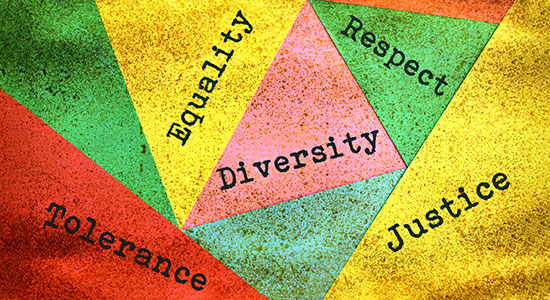
Bias is not limited to major issues such as race and gender. Bias is present in many other areas, such as our educational background, where we live, and how we dress.
Did you attend U.W., Marquette, or an out-of-state law school? We are judged on where we practice. Are you based in a rural county or an urban one? We are evaluated on our very own appearance. Do you have a thin and wispy or large and burly build? Are you an expensive, fancy dresser, or a comfort-and-plain-clothes one?
It may even come from seeming innocuous areas. Are you a vegetarian or meat-lover? Are you the quiet type or the vocal one? These are all factors that if another person knows about you, can make a preconceived image of who you are, even though that image may be incorrect.
Since bias can come from so many sources, it’s hard to ignore the fact that we all have biases.
Biases themselves are not inherently bad things, but are simply the result of our own brain trying to sort out the flood of stimuli we constantly get. Our brains will try to simplify the work it needs to do, by finding patterns and differences in the information it receives and categorizing then. These categories plant the roots of bias, which are then fed with more information through personal memories and socialization. These are simply a natural part of being human – they are the habits we form to help our brains process all this information.
Although bias occurs naturally, making decisions based on bias is voluntary and controllable. Rather than jumping to an immediate conclusion, we need to take an extra moment to analyze the decision to make sure that any present biases have not pushed us in the wrong direction. It's the exact same thing we do when we get threatened by something: First, we have our instinctual fight-or-flight reaction to start, but then after a deep breath, we evaluate the situation before making a choice.
Bias Impacts Your Practice
A difficulty is that sometimes bias is so subconscious that we cannot even recognize it. This is one of the cores of implicit bias training: to discover those hard-to-find biases, so we can learn not to base decisions on them.
Training also helps us recognize biases in others, which is a critical skill for attorneys. For instance, in preparing for jury selection, an attorney needs to be able to identify biases in juror candidates. We look to see if any public information on a juror exposes a potential bias that could affect their judgment. This is absolutely essential to me as an Asian American criminal defense attorney who often represents people of color.
More importantly, anti-bias training can address one of the biggest problems at the core of the debate on bias training. People may feel bias training is unfairly categorizing them as racist, sexist, or prejudiced against certain people. They may feel defensive and uncomfortable, because they believe the training highlights their own inadequacies, or even accuses them of not treating others fairly.
That is not the point of anit-bias training. This training is not a judgmental experience of shaming yourself or others.
Biases Affect Our Judgment as Lawyers
Learning about bias and how it impacts all of our behaviors and decisions is a critical first step in understanding how our rational, logical minds may be affected when it comes to judging someone. This training will help teach those who judge you to treat you fairly and without bias.
As attorneys, facts and logic should be the basis of our arguments and strategy, but bias likely has a significant influence that we are unaware of. Similarly, others may be judging us based on their own unconscious biases.
In order to stop or at least minimize the harm done by this cycle, we must, as responsible, ethical stewards of the law, become aware of biases so we can all work to disrupt this cycle.
Anti-Bias Training is Critical for All of Us as Lawyers
This is why anti-bias training is critical for all of us: It is our moral and ethical responsibility as lawyers to learn about bias and how it impacts all of our lives and our work.
We need to learn how to recognize biases in ourselves as well as others, so no one unknowingly makes dangerous and harmful judgments. This is a process, and over time you as well as others will improve – not just as individuals, but collectively as a profession.
Remember, this training is not only about how you treat others, but is as much about how others treat you.
This article was originally published on the State Bar of Wisconsin’s Agriculture Law and Rural Practice Blog of the Solo/Small Firm & General Practice Section. Visit the State Bar sections or the Solo/Small Firm & General Practice Section webpages to learn more about the benefits of section membership.
